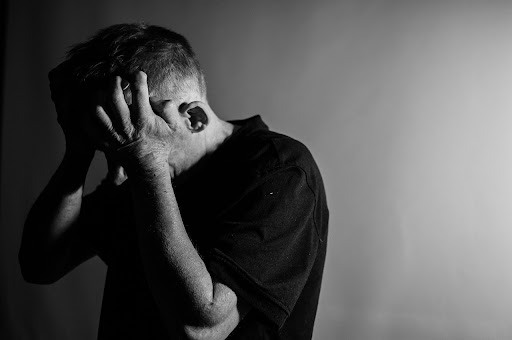The holidays are generally a time of cheer and spirit that bring out the best in a lot of people. However, some people emotionally struggle during this time of the year and for months afterward. This struggle can go beyond sadness and end in the downward slump of depression. It can last a long time, making everyday activities and tasks nearly impossible. In some cases, the signs of depression go unnoticed and unmanaged. Depression can also vary greatly from person to person, therefore becoming somewhat confusing.

The following list are some very important signs of depression that you should not ignore. Keep in mind that this is not an exhaustive list of possibilities. If you feel as though you are suffering from depression, but do not meet any of these signs, it still is appropriate to seek medical attention. This is especially true if you know the holidays bring about extreme emotional feelings.
When depression first begins, it usually causes feelings of unrelenting sadness or hopelessness. Additionally, you may feel less interested in your daily activities or the things that generally make you happy. Should these feelings and inability to cope with daily life last longer than 2 weeks, combined with some of the symptoms below, then it is definitely time to seek medical attention.
1. Sleeping Issues
Having a good night’s rest is key to staying healthy for both your mind and body. For some people experiencing depression, they might actually be sleeping too much. This is called hypersomnia and it is a sign often associated with depression. If you are suffering from hypersomnia, you might find it difficult to leave your bed and curl up to extended naps throughout the day.
Needless to stay, sleeping issues and depression can also go the opposite way. Depression can lead to difficulty sleeping. This could be insomnia or the inability to fall or stay asleep, the inability to shut your mind off and it could also affect your sleep cycle in general. Depression can throw off your circadian rhythm, which is the actual biological process that controls your sleep patterns.
Ideally, you should aim for 7-9, uninterrupted hours of sleep each night. Although chronic sleep issues are just one possible symptom of depression, it can cause serious safety issues if left unchecked. For example, lack of sleep might cause you to fall asleep behind the wheel or increase your risk for diabetes.
2. Exhaustion or Fatigue
Depression is exhausting. An immense amount of exhaustion or fatigue can wrap around you, gripping you so tight that not even an energy drink can break you free. You might start letting relationships slip, calling your friends less and just feeling overall drained. You might even notice declining invitations to parties or events because you cannot muster the emotional strength to attend.
3. Restlessness or Jittery
With depression, some people might feel completely subdued, while others actually feel restless or jittery. Both ways of feeling can contribute to depression. You might find yourself pacing, wringing your hands, or not being able to sit quietly. Keep in mind that this symptom could also be a side effect of your depression medication. Be sure that this is discussed with your healthcare provider.
4. Trouble Focusing
It could be the restlessness or the fatigue, but overall depression can bring about a big issue with focusing. You might find yourself easily distracted or unable to finish a task or a project. While some people have an overwhelming feeling of sadness, others report that difficulty concentrating is more apparent.
5. Weight gain or Weight Loss
Depression is also known to cause weight issues and it can go either way. You might find an escape with food that helps you fill the void. You might also lose your appetite completely. Losing or gaining weight without trying on top of some of these other symptoms is likely a sign that you are depressed.
6. Feeling Inadequate
If you find yourself talking negatively about yourself often with a poor self-perception, this might be depression talking. You might think of yourself as worthless, inadequate, guilty or unimportant. If you find yourself doing this very often, then you likely should talk with your healthcare provider about your thoughts.
7. Constant Thoughts of Death, Self-Injury or Suicide
Thoughts of death, self-injury or suicide is a very serious sign of depression and should not be ignored. You should not wait to tell someone. Contact your counselor right away or call the National Suicide Prevention Lifeline at 1-800-273-8255 or TTY 1-800-799-4889. A licensed mental health professional will listen and guide you in taking steps to stay safe. Ask a friend or a family member to stay with you until you can get the help you need.
Additionally, if someone you know has expressed thoughts of suicide, please do not stay quiet. Do not worry about hurting their feelings or thinking you will say something wrong. Get them help!
Final Thoughts
Depression is a serious issue and is often exacerbated during the holiday season. It should never be taken lightly, especially if you have serious thoughts about hurting yourself. Make sure you contact your doctor and have a thorough discussion about your signs or symptoms. Return to health by being proactive.
Comments are closed.
